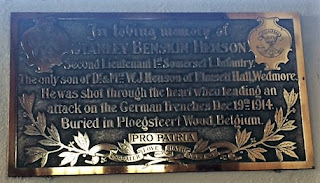Today, Theresa May
and Angela Merkel met for the first time. I have followed Brexit events
closely. Oddly enough, I have been working on a translation on team-building.
The respective terms citoyenneté and
community in French and English have stood in sharp contrast. French and
English are full of false and fickle friends. The words may look similar, but
they often have different positive or negative connotations, emotive appeal or
different usages. They only look like equivalents. This set me thinking…
I used community in my translation. My French
client queried my word choice. Communauté
does not have the same resonance for him as
citoyenneté. Yet, for me, the word
community has a much greater emotive appeal and greater resonance in a text
about working together. The emotive effect of a word in a foreign language is
different for us.
I wince when I
read an EU text addressing citizens.
My reaction is instinctive. I wrote it off as Eurospeak until today. Now,
against the Brexit backdrop, I see a fundamental breakdown in communication. I
remember how odd the EU’s citizens’ dialogue sounded. The wording seems wrong to engage Brits from the front cover or the first words of a speech.
Citizenship in English is closely tied to nationality –
and that now infamous Brexit word sovereignty.
Sovereignty is important to the
British for strong historical reasons. Citizenship is a cold, legal term; we associate it with our passports and official form-filling.
It doesn’t have the same sense of belonging as community.
Citoyen has a much stronger emotive appeal in French than citizen in English. Its usage dates back
to the French Revolution with its sense that all are equal. It appears in La Marseillaise – can you get more
emotive than a country’s national anthem?
Researching my
subject, I found that citoyenneté
appears to have much of the usage of the English community. In a highly topical usage, I found it applied to efforts
to bring Muslims and Christians closer together. A similar UK local government
text refers to community cohesion.
My research has
left me wondering if the UK would have felt more emotionally connected, if we
had been choosing to remain in the
European Community rather than leave the European Union. I suppose Brexiters will merely say that I am crying over
spilt milk. I’m splitting hairs over word choice. Yet, such nuances do matter.
They speak to something deeply rooted within us.
EU
Presidency
The UK was to take
up the EU Presidency in 2017. I think it was wrong that UK voters were never
told how close we were to holding the EU Presidency during the Referendum. This
should have been the UK’s chance to influence the future direction of the EU.
Very few Brits were aware of the UK’s forthcoming opportunity. Nor did they know that the Presidency would have meant working as a team or trio with Malta and Estonia. The EU Referendum should have followed
the UK’s Presidency if Brits were still dissatisfied after this 18-month period of influence.
Theresa May today
suggested that she would let the EU Presidency go. I believe that this is a
mistake. Even without Brexit, the EU will have to redefine its mission and remit.
All the indications suggest that the UK will remain one of Europe’s staunchest
allies and a strong trading partner. Our pragmatic approach could prove useful
in the tricky times ahead.
Cultural
differences in communications
I can only hope
that the EU PR machine reconsiders its homogenised communications as a result
of Brexit. It needs to take greater account of cultural differences. I wonder
how many other miscommunications like citizen
and community are lurking in other
translations. I can’t help thinking about Khrushchev’s “we will bury you”. What we understood and what he meant weren’t the
same thing. The influence of those words was far-reaching, as Brexit is proving
now.
 |
| What will Brexit mean for democracy and union in the United Kingdom? |
Ah, but Theresa
May and Angela Merkel seem to agree that ‘Brexit is Brexit’. Did they mean it? What
do they each understand by Brexit? Undoubtedly, not the same thing at this
early stage.
What did the UK
public understand by Brexit? Not how it is turning out… Will the Referendum
withstand legal challenge in the courts? Where does any course of action leave democracy?
Is the subject
really so dead and buried?

















